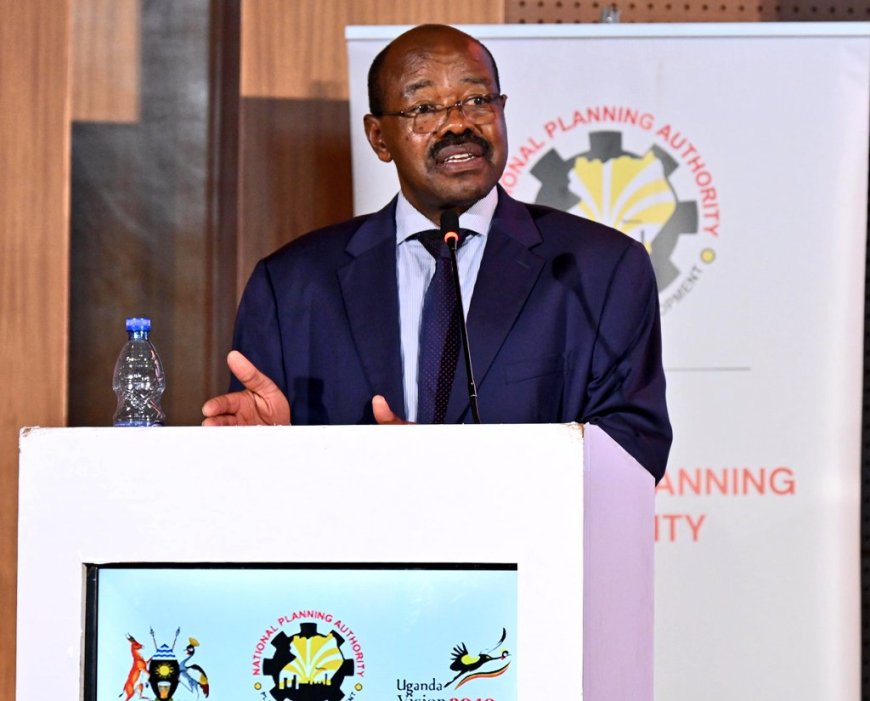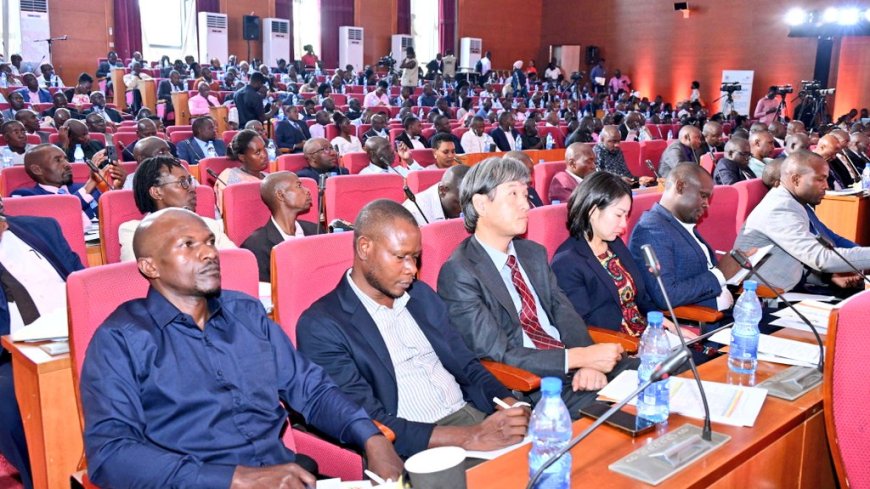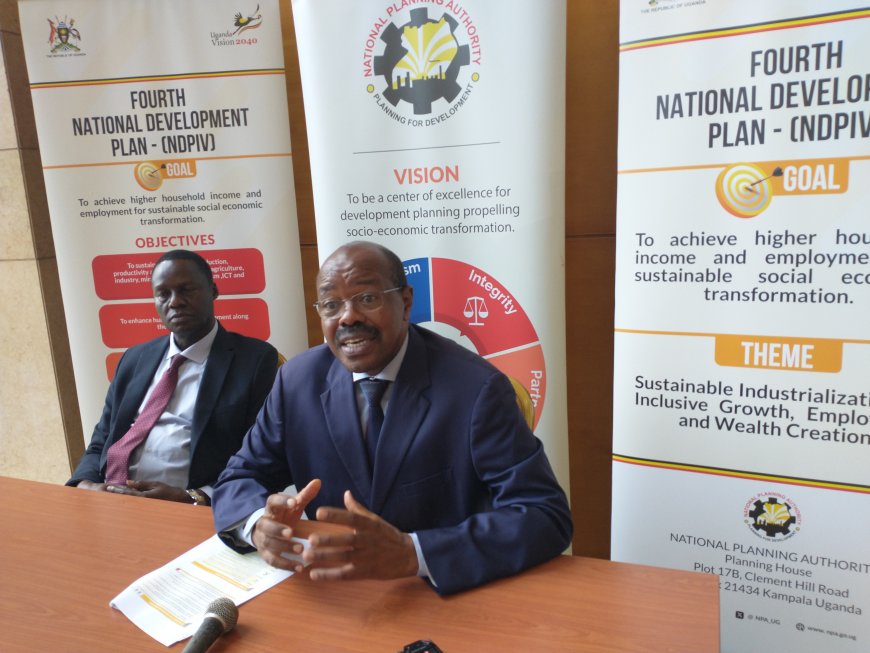Finance Ministry, NPA Introduces NDP IV With Focus on Sustainable Industrialization

The Ministry in charge of Finance Planning and Economic Development has together with the National Planning Authority (NPA) initiated the national development plan 4 (NDP IV) with it's road map.
On Wednesday in kampala at the office of the president, Hon. Amos Lugoloobi, the Minister of State for Finance, Planning and Economic Development presided over the engagement with both the development partners, all planners, stakeholders and civil society organizations.
This year's theme for NDP IV has been drafted as ,“ Sustainable Industrialization for Inclusive Growth , Employment and Wealth Creation.”
Hon. Lugoloobi, while addressing the audience indicated that as they may all be aware, the NDPIII (2020/21–2024/25) expires in June 2025.

This therefore, means that legally, as per the NPA act, NPA regulations section 8 (1) & 2 (b), and PFM act, the draft plan NDP IV 2025/26 – 2029/30 should be ready by July, 2024 and the final Plan by September, 2024 to inform the country’s macroeconomic framework and budgeting processes for FY2025/26 and the subsequent years, he said.
The plan will also inform various country cooperation and assistance strategies for International organisations, bilateral and multinational agencies resident and operating in Uganda.
According to Lugoloobi, “ the NDPIV is the fourth out of six National Development Plans (NDPs) that are meant to implement Uganda Vision 2040.”
He added that It is also the last plan to deliver the global agenda 2030 of the Sustainable Development Goals (SDGs), and the first within the implementation of government’s strategy for achievement of 10 fold growth.
The NDP IV strategic direction has also been tailored to solve and address the challenges and lessons learnt from the previous plans and recommendations, going forward.

“Particularly, the NDP IV strategic direction is anchored by the desire for consolidation of development gains of past NDPs, accelerated implementation to close implementation gaps in the previous development plans, stronger follow up, management and accountability for results, innovative financing and deepened private sector involvement in development, cognizant of the local content considerations and leveraging all existing opportunities.”
These will particularly be done by defining transformative approaches to drive faster growth for socio-economic transformation, he noted.
Lugoloobi, however, said that most importantly, consolidation of development gains will include maintenance of the development base in terms of peace, security and macro-economic stability.
What's Your Reaction?
 Like
0
Like
0
 Dislike
0
Dislike
0
 Love
0
Love
0
 Funny
0
Funny
0
 Angry
0
Angry
0
 Sad
0
Sad
0
 Wow
0
Wow
0














































